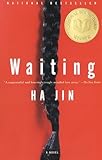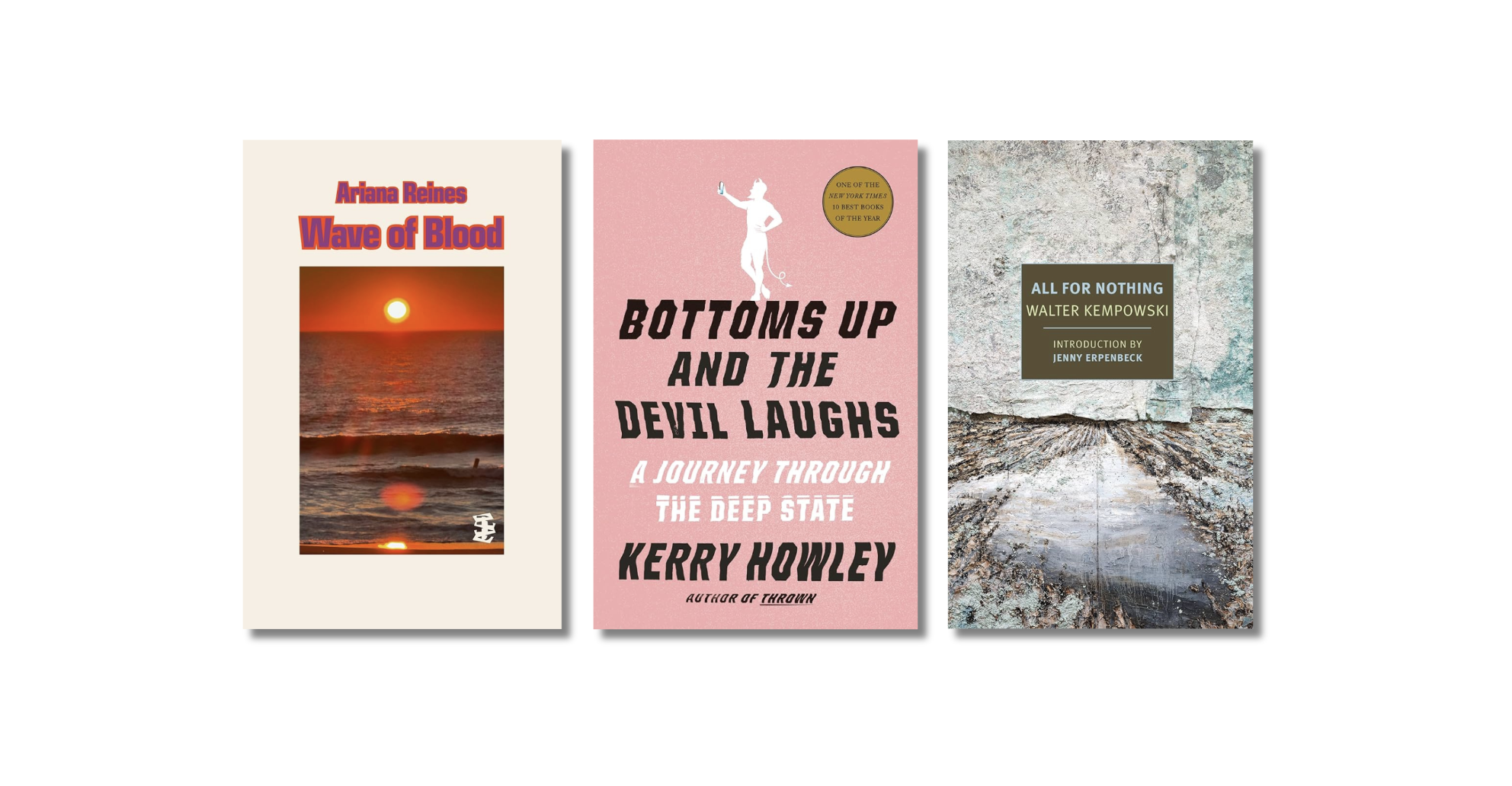Almost exactly year ago, I wrote a list of books to read to understand late-stage capitalism for this site, because so much of what’s going on in the world today—Trump, endless wars, climate disasters, the migrant crisis, extreme income inequality—can be tied back to capitalism and yet we have so few books that examine its effects on us who are living in this frenzied late-stage capitalist epoch.
 I would have added Gary Shteyngart’s Lake Success to the list, but it hadn’t been published yet. On first reading it as a literary novel, the “rich-hedge funder-goes-on-a-journey-suffers-hardship-like-the-Greyhound-bus-bathrooms-returns-having-learned-a-thing-or-two” was a bit of a let-down. The frenetic satirical voice, the similar plot of his older work, Super Sad True Love Story with the older secular Jewish man and the younger Asian woman, grated on my nerves a bit. While other reviewers had praised Lake Success as a radical departure from the previous, since it dealt with an American-born not immigrant character, I still couldn’t get over the similarity in tone, down to the fact that the older Jewish American narrator, previously “Lenny,” is now “Barry”—which of course rhymes with “Gary.”
I would have added Gary Shteyngart’s Lake Success to the list, but it hadn’t been published yet. On first reading it as a literary novel, the “rich-hedge funder-goes-on-a-journey-suffers-hardship-like-the-Greyhound-bus-bathrooms-returns-having-learned-a-thing-or-two” was a bit of a let-down. The frenetic satirical voice, the similar plot of his older work, Super Sad True Love Story with the older secular Jewish man and the younger Asian woman, grated on my nerves a bit. While other reviewers had praised Lake Success as a radical departure from the previous, since it dealt with an American-born not immigrant character, I still couldn’t get over the similarity in tone, down to the fact that the older Jewish American narrator, previously “Lenny,” is now “Barry”—which of course rhymes with “Gary.”
But sitting back and taking it in as a whole, and situating it amongst our current cultural and political climate, I realized it is possible to write a novel that seems not fully functional in a literary sense (including with somewhat generic unlikeable characters), but its dysfunction can be, inadvertently or not, precisely the point.

 It reminds me, glancingly, of Ha Jin’s masterful War Trash, a “diary” about a Chinese soldier who becomes a POW in a U.N. detention camp during the Korean War. The novel’s deliberately clunky voice (a shock after the lyrical Waiting) made the reading difficult but in the end faithfully convey a non-native’s voice further occluded by the stream-of-consciousness form of the diary entry written by a traumatized soldier during a war.
It reminds me, glancingly, of Ha Jin’s masterful War Trash, a “diary” about a Chinese soldier who becomes a POW in a U.N. detention camp during the Korean War. The novel’s deliberately clunky voice (a shock after the lyrical Waiting) made the reading difficult but in the end faithfully convey a non-native’s voice further occluded by the stream-of-consciousness form of the diary entry written by a traumatized soldier during a war.
Shteyngart’s previous novel, Super Sad True Love Story, was putatively a love story, but I admired it for its look at techno-futurism, eerily predicting the smart phone, skinny jeans, Internet sites like Hot or Not. It was a funny Black Mirror long before there was Black Mirror, and, for something totally esoteric, the author’s a correct and nuanced and untranslated use of the Korean word gijibae (“brat”—used only for women and girls) was pretty cool.
Lake Success, in contrast to Super Sad, dwells not in the near-future but in the real time of a Trump election cycle, rooted in the seeming unending nightmare of our present; to use a contemporary word, it feels like “streaming.” It starts with Barry, the head of a hedge fund, eschewing a private helicopter or other hedge fund modes of transport to head to Port Authority, on the lam from his marriage, his son’s autism diagnosis, the feds who are closing in on him for some shady trades. He hops on a Greyhound and ends up traversing the country with nothing but some cash and a suitcase full of his beloved expensive watches and the vague goal of reuniting with his college girlfriend, with whom he has not kept in touch basically since they broke up after college, when he chose high finance over their relationship. Much of the middle of the book is a picaresque tour of America’s Triumpian interior. Shteyngart ups the stakes of his modern Odysseus journey by subtracting Barry’s phone and credit cards until he lands in a cash-poor situation (at one point begging with a cardboard sign and cup) not dissimilar from that of the average Greyhound bus passenger, citizens of all colors who are sharing the bus ride with him and act as a kind of Greek chorus.
Barry is about as deeply an unlikeable narrator as they come. He judges women on purely superficial bases (his first contact with his wife-to-be is when she admonishes him for ogling her breasts). He is so underdeveloped emotionally it seems he has no Pavlovian responses to anything except thoughts of sex (but not with his wife, now) and money, which, since he has so much of it, he mainly uses to buy extremely expensive rare watches that he dithers over while barely paying attention to his son.
 The finance aspect of the novel is that Barry is being chased by the feds for his shady positions his hedge fund takes in “Gastrolux” and “Valupro,” which seem inspired by the fraud and price gouging of hedge funder Martin “Pharma Bro” Shkreli and the Galleon Group’s Raj Rajaratnam, a Sri Lankan immigrant to whom a director at Goldman Sachs passed insider information. Barry is cheater on his wife and on SEC regulations, but he isn’t so much a Bonfire of the Vanities Sherman McCoy Master of the Universe as a clueless doofus, even though sloppily racist (he thinks his friend Jeff Park is Chinese—a joke recycled from Super Sad True Love Story with the young Korean American woman, Eunice Park: “Chinese women are so delicate”). The only thing Barry knows in his heart is making money (which he continues to do despite the feds) and while he tries to love his three-year-old son, it seems the only way he can do this is through saving his son, who can’t tell time, a special watch to inherit. As he abandons his family and cuts off communication, Barry knows something’s a bit off with him; there are clues he feels might indicate he is “autistic” like his son.
The finance aspect of the novel is that Barry is being chased by the feds for his shady positions his hedge fund takes in “Gastrolux” and “Valupro,” which seem inspired by the fraud and price gouging of hedge funder Martin “Pharma Bro” Shkreli and the Galleon Group’s Raj Rajaratnam, a Sri Lankan immigrant to whom a director at Goldman Sachs passed insider information. Barry is cheater on his wife and on SEC regulations, but he isn’t so much a Bonfire of the Vanities Sherman McCoy Master of the Universe as a clueless doofus, even though sloppily racist (he thinks his friend Jeff Park is Chinese—a joke recycled from Super Sad True Love Story with the young Korean American woman, Eunice Park: “Chinese women are so delicate”). The only thing Barry knows in his heart is making money (which he continues to do despite the feds) and while he tries to love his three-year-old son, it seems the only way he can do this is through saving his son, who can’t tell time, a special watch to inherit. As he abandons his family and cuts off communication, Barry knows something’s a bit off with him; there are clues he feels might indicate he is “autistic” like his son.
Barry’s world of high finance frequently references Goldman Sachs, where I once worked; Goldman has indeed become part of pop culture, if anything for indelibly fomenting the mortgage crisis of 2008, but I didn’t find Barry convincing as an ex-athlete finance bro. Barry’s default modes are sheepish and full of shame, which are usually not part of a finance bro’s emotional palette, evidenced in how Goldman conducted part of its business at strip clubs and on golf courses. Most of the finance people I worked with were too self centered to have that aching Barry angst or his need to please because they were convinced they’d already “won” via their acumen and merits and the spoils of income inequality.
What makes Lake Success a notable book for this year is less characterizations and plot. Despite the fact that this novel is pushed as a departure from his earlier immigrant novels, it’s almost like each novel has a version of the same protagonist going through different situations, and that his books merely skim the surface of technical and scientific issues while utilizing jargon (China-pegged currency arbitrage, genetic modification, mortgage-backed securities) but in some ways this refractory, superficial style is precisely what makes his work so interesting and original, especially at this time.
 While Shteyngart’s “Barry” characters (I’ll call all his anti-hero protagonists Barry) grope (sometimes literally) their way into their futures, dystopian and not, in between the gross jokes (Barry burps up beer and Domino’s pizza while simultaneously trying to navigate a touching moment with a friend) that rise from the basic—in all senses of the word—plots (love story, road trip story), in Lake Success, we readers can squint to look at the glinting of the over-the-top glass and chrome of these billion-dollar apartments and see, mercilessly reflected back, the attention-deficient, capital-obsessed, atomized, ever accelerating FOMO society that we have become. Even Barry’s liberal-leaning wife, a lawyer-turned-stay-at-home-mom, rationalizes the good living afforded by Barry’s rapacious capitalism and uneasily deludes herself that, as Dawn Powell characterized certain New Yorkers in the ’30s, that with her phalanx of cooks and nannies and doormen, she is still “not idle rich, but busy, good-living, intelligent idling rich.”
While Shteyngart’s “Barry” characters (I’ll call all his anti-hero protagonists Barry) grope (sometimes literally) their way into their futures, dystopian and not, in between the gross jokes (Barry burps up beer and Domino’s pizza while simultaneously trying to navigate a touching moment with a friend) that rise from the basic—in all senses of the word—plots (love story, road trip story), in Lake Success, we readers can squint to look at the glinting of the over-the-top glass and chrome of these billion-dollar apartments and see, mercilessly reflected back, the attention-deficient, capital-obsessed, atomized, ever accelerating FOMO society that we have become. Even Barry’s liberal-leaning wife, a lawyer-turned-stay-at-home-mom, rationalizes the good living afforded by Barry’s rapacious capitalism and uneasily deludes herself that, as Dawn Powell characterized certain New Yorkers in the ’30s, that with her phalanx of cooks and nannies and doormen, she is still “not idle rich, but busy, good-living, intelligent idling rich.”
What this novel has carved out, as if with surgical scalpel, is the feeling of malaise that in our weird late-stage capitalist epoch, even someone worth 30 billion dollars can feel. Jeff Park the “Chinese” financier peevishly complains that the top of his Ferrari “used to go down in fourteen seconds…but now it takes eighteen. Everything’s a scam.” Barry, likewise, can’t believe it when he finds his ridiculously expensive watch has lost a few seconds. It’s a funny and sad (and maybe super-sad) realization for these one-percenters that money can’t buy them a perfect universe, that having the means to overspend on a consumable good like a watch still does not guarantee its quality—it is a scam—nor does thirty billion versus fifteen billion make a difference in death. Here is where, through a sea of financial jargon sometimes inexpertly applied (and maybe the goobledy-goo of financial jargon is precisely the point), we hit gold.
The feds do catch up to Barry, but it gets resolved in a paragraph or two (no spoilers, here), and Barry’s free to go and he’s not even barred from the industry; at first this seems like “too easy” a plot point, the galloping narrative merely running out of gas. But it continues as an eminently plausible and expected resolution (art imitates life and back again). It therefore makes in a paragraph the point that a thousand studies from the Roosevelt Institute outlining the costs of rescinding of Glass-Steagall (a Depression-era banking reform law) never could, about how we got here, and how we are unlikely to learn from our mistakes, as long as the money-laden people stay in charge.
That pretty much all the upper-income characters in Lake Success are mild-to-moderately loathsome illuminates the hypocrisies that the people on the “good” side of income inequality have little motivation to change it, even when they are, like Barry’s wife, uncomfortable with some of the moral aspects of it. Barry considers himself a Republican but “socially liberal,” but sees nothing wrong with gouging dying patients for an essential drug because profit and shareholder value is his lodestar. Jeff Park’s father actually needs that drug, and so Jeff is mad at Barry because of it, but Jeff is also glad he, too, is a rapacious Lamborghini-driving financial swell because that way he can afford the heavily-price-inflated drug for his father. Talk about a model minority.
 It’s a radical updating of The Great Gatsby as we see Barry smashing up people’s lives, while his cross-country journey gives him plenty of time to think about it and even meet the people impacted by what to him was merely moving numbers around. In our current culture, we privilege business, even though it doesn’t make sense—why do we focus to the exclusion of arts and other sciences, on economic value measured in piles of paper while we despoil the air and water that we depend on to live? Adam Smith’s “invisible hand” isn’t rational and impartial, it’s about maximizing profit; as evidence, as Americans, we might want to consider why all other countries in the world are smart enough to not base their healthcare systems on ours, and the majority have some kind of universal insurance while we, in the so-called land of consumer choice, don’t even had a public option for it. Further, in classic economics, profits would be zero; in a perfect capitalist society because of transparency in costs of production that essential pharma drug should be priced near what it cost to make. Barry succeeds by subverting all of that
It’s a radical updating of The Great Gatsby as we see Barry smashing up people’s lives, while his cross-country journey gives him plenty of time to think about it and even meet the people impacted by what to him was merely moving numbers around. In our current culture, we privilege business, even though it doesn’t make sense—why do we focus to the exclusion of arts and other sciences, on economic value measured in piles of paper while we despoil the air and water that we depend on to live? Adam Smith’s “invisible hand” isn’t rational and impartial, it’s about maximizing profit; as evidence, as Americans, we might want to consider why all other countries in the world are smart enough to not base their healthcare systems on ours, and the majority have some kind of universal insurance while we, in the so-called land of consumer choice, don’t even had a public option for it. Further, in classic economics, profits would be zero; in a perfect capitalist society because of transparency in costs of production that essential pharma drug should be priced near what it cost to make. Barry succeeds by subverting all of that
 The Lake Success of the title is actually a place as well as a metaphor in the book. It is Barry’s green light at the end of the dock, his East Egg, his Rosebud and his White Whale all at once. Why not pack it all into one narrative? Late stage capitalism’s name suggests excess, and also that we are approaching a terminus, as presaged in the title of the excellent early-late-stage capitalism novel (2006), Then We Came to the End. That unless we pivot drastically (“a course correction,” as Barry might say), there’s a black hole waiting as a consequence of our pollution of our environment, of our prizing lucre over life, our worship of paper, of using technology to get rid of inefficiency then discovering that human relationships are remarkably inefficient as well.
The Lake Success of the title is actually a place as well as a metaphor in the book. It is Barry’s green light at the end of the dock, his East Egg, his Rosebud and his White Whale all at once. Why not pack it all into one narrative? Late stage capitalism’s name suggests excess, and also that we are approaching a terminus, as presaged in the title of the excellent early-late-stage capitalism novel (2006), Then We Came to the End. That unless we pivot drastically (“a course correction,” as Barry might say), there’s a black hole waiting as a consequence of our pollution of our environment, of our prizing lucre over life, our worship of paper, of using technology to get rid of inefficiency then discovering that human relationships are remarkably inefficient as well.
Lake Success does take a drastic pivot at the very end (no spoilers!), with a burst of lyricism verging on sentimentality that suggests both beauty and love—and an end. The way Barry lives is clearly not sustainable, and this is what we learn. In this, the novel succeeds wildly, for what is the role of artist if not to reflect back society to the reader—even, and perhaps especially, if we aren’t going to like what we see?
More from A Year in Reading 2018
Don’t miss: A Year in Reading 2017, 2016, 2015, 2014, 2013, 2012, 2011, 2010, 2009, 2008, 2007, 2006, 2005










